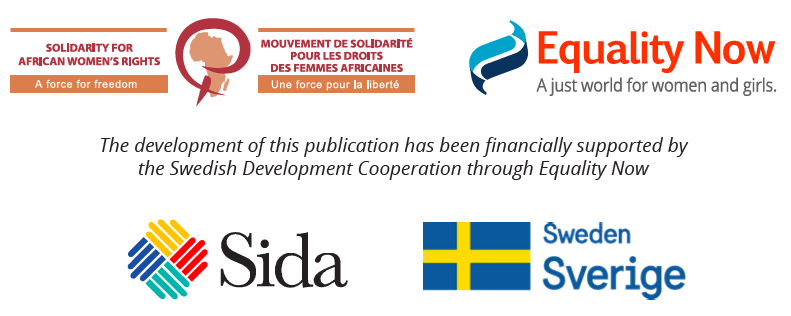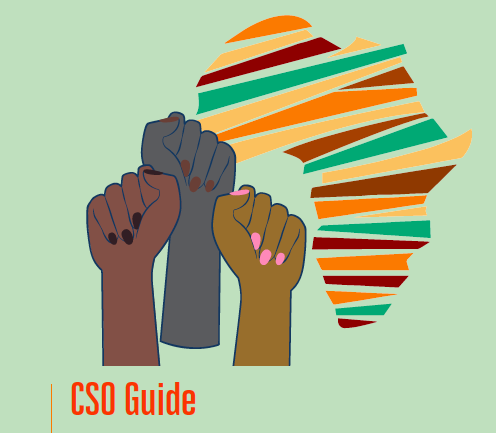Background to the Guide
The adoption of the Protocol to the African Charter on Human and Peoples’ Rights on the Rights of Women in Africa (Maputo Protocol) on 11 July 2003 marked an important milestone in the promotion and protection of women’s rights in Africa. The Maputo Protocol was a fruit of many years of activism and advocacy by Civil Society Organizations (CSOs), with women’s rights organizations at the forefront. With the adoption of the Protocol, CSOs around the continent formed the Solidarity for African Women’s Rights (SOAWR) to coordinate their advocacy efforts aimed at ensuring speedy ratification and entry into force of the Maputo Protocol. As a testimony to these efforts, the Maputo Protocol attained the minimum number of ratifications in a record time of 28 months, a feat that had rarely been seen in respect of other human rights treaties of the African Union (AU) or its predecessor, the Organization of African Unity (OAU).
In the last 18 years, significant strides have been taken, both at the national and regional levels, towards addressing the myriad and intersecting forms of discrimination against women. For one, challenges and gaps still abound in the promotion and protection of women’s rights in Africa. The Maputo Protocol has not received universal ratifications close to two decades after its adoption. Out of the 55 AU member states, 13 have not yet ratified the Protocol. Beyond ratification, there are gaps in domestication and implementation of the Protocol in countries where it has been ratified. This situation points to an inevitable conclusion: The work of SOAWR is as relevant today as it was when it was formed in 2004. This context forms an important operational backdrop for SOAWR as it is currently implementing its Strategic Plan 2020-2024, which was adopted at the beginning of 2020.
One of the central objectives of the SOAWR Strategic Plan is to contribute to the AU’s All for Maputo Protocol Programme. The “All for Maputo Protocol Programme” neatly dovetails into one of SOAWR’s core objectives, that is, accelerating the universal ratification of the Maputo Protocol, as well as its full domestication and implementation. To realize this objective, SOAWR Coalition members will need to engage with AU member states at multiple levels, including national, sub-regional and regional. However, SOAWR Coalition members, and CSOs in general, have varied technical capacities and expertise in the art of state engagement. This Guide seeks to build the capacity of SOAWR Coalition members, and indeed of all CSOs working on women’s rights and gender equality in Africa, by providing practical guidance on how to effectively engage AU member states in respect of the Maputo Protocol.


